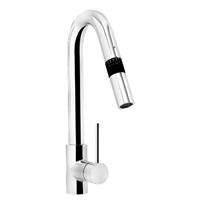Top tips to prevent winter plumbing problems
So with all this cold winter weather upon us, here are some steps you can take to ensure you don’t encounter any unplanned plumbing repair costs and insurance excesses over the next few weeks.
The Water Regulations Advisory Scheme (WRAS) has partnered with the Association of British Insurers (ABI) to reveal trends in winter plumbing-related insurance claims and share valuable tips on how to prepare your home for this harsh winter weather we are all experiencing at the moment.
Burst pipes are common causes of weather-related home insurance claims. In 2018, we all felt the wrath of the ‘Beast from the East’, and as a result, many insurers accounted for over 50% of weather-related claims.
Taking a few key steps can help avoid all the unnecessary stress caused by burst water pipes due to all the frost, which can cause flooding, hundreds of pounds of damage to your home and leave you with no water for washing, cooking and even drinking.
Each year we all hear similar stories about the devastating impact the cold can have on our homes and ultimately, we all pay for it in our pocket!
Following some straightforward tips and being prepared for the colder weather is the best way to prevent further plumbing issues. If you need help insulating pipes or fixing leaks, always use a qualified plumbing specialist to ensure the job is done safely and in line with British water fittings regulations.
Here are some top tips to help get your home through winter
Stop Tap
Find your stop tap and check it works – if a pipe freezes and bursts in your house you need to be able to turn off the water supply pretty quickly. Ensure that the stop tap works and is not too tight, as they are prone to become stiff or seize up over time. You can do this by gently opening it every three months but remember to turn it back half a turn after fully opening to prevent it seizing up.
Insulation
Making sure pipes and cisterns are properly insulated is one of the simplest and most inexpensive things that can be done to help protect a property from the cold.
This is even more important in areas which are not heated, like utility rooms and lofts. Ensure you take particular care to make sure that there are no gaps in the insulation, valves or fittings, as even a small gap can let the cold in and ultimately the frost.
Repair
Repair any leaky valves or taps, it is a myth that running water does not freeze, as water is more likely to freeze in the sink or drain and cause it to block and then spill over causing damage.
Heating
Warmth is the key defence against frozen pipes, so when people are away or the property is not being used, ensure you keep the heating on low or having it come on a couple of times a day helps maintain a minimum level of heat to keep the cold at bay.
If the property will be empty, either:
leave the heating on low – about 14 to 15 degrees centigrade
If the building is going to be empty for a while, turn off the water supply and drain the system
Approved Plumber
Keep the name of a good plumber handy – type in your postcode at watersafe.org.uk to find your nearest approved specialist.
It does pay to take a proactive approach to maintaining properties and getting them ‘winter-ready’, as last year the average repair cost over £2,500 with nearly a thousand people making a claim daily.
Water damage to a property is usually covered as a standard feature in building insurance policies. This damage is one of the most common types of domestic property damage claims, with insurers paying out £2.2 million for it every day.
And Finally…
For all your plumbing equipment and advice speak to the experts at Plumbing for Less on 0113 322 3140 or email sales@plumbingforless.co.uk.

